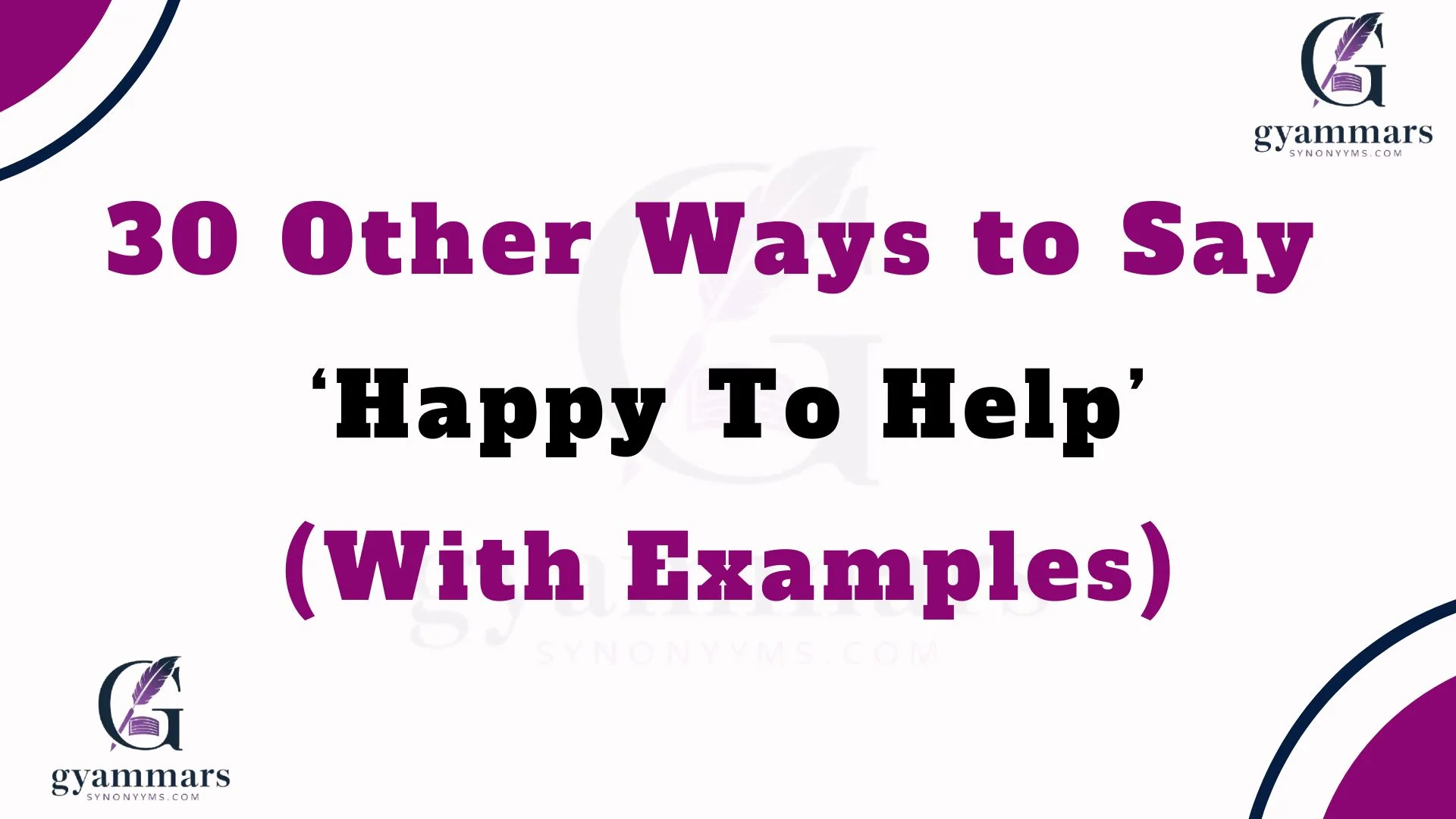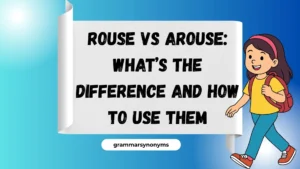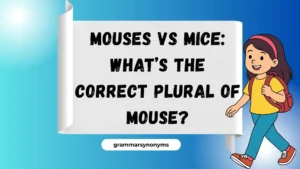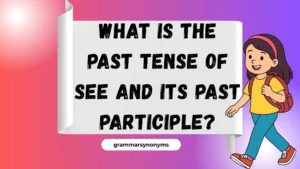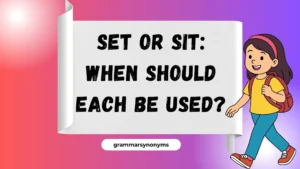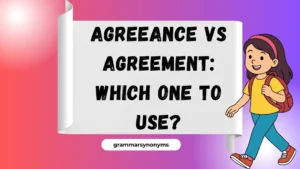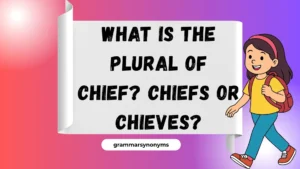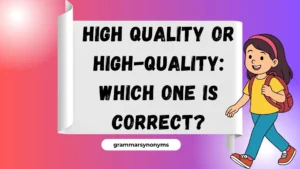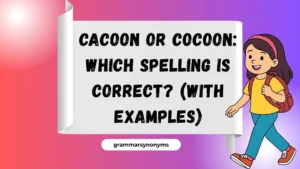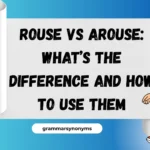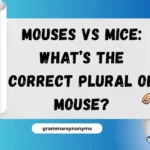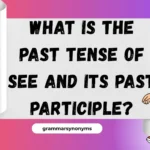Finding the right words when responding to gratitude is more than just politeness—it’s about expressing genuine care, warmth, and understanding. While saying “Happy to help” is common and kind, it can sometimes feel repetitive or impersonal. Having a variety of alternatives can help you sound more thoughtful, approachable, and professional, depending on the situation.
In this guide, we’ll explore 30 empathetic and versatile alternatives, complete with definitions, examples, tones, and best-use scenarios so you can make every interaction feel more personal and meaningful.
What Does “Happy To Help” Mean?
Saying “Happy to help” is a polite and kind way to let someone know that you’re glad you could be of assistance. It conveys support, willingness, and positivity while reinforcing that the favor or action wasn’t a burden.
Is It Professional/Polite to Say “Happy To Help”?
Yes, “Happy to help” is both professional and polite, making it a safe choice in business emails, customer support, and casual conversations. However, because it is so widely used, it can sometimes feel generic or insincere. That’s why having alternatives can give your communication more warmth and authenticity.
Pros and Cons
Pros:
- Friendly and positive
- Works in both casual and professional settings
- Easy and quick to say
Cons:
- Can feel overused or generic
- May sound automatic rather than personal
Synonyms For ‘Happy To Help’
1. Always glad to help
2. My pleasure
3. Don’t mention it
4. Anytime
5. Of course
6. No problem
7. It was nothing
8. No worries
9. I’m here for you
10. It’s the least I could do
11. No trouble at all
12. I was happy to do it
13. Glad I could help
14. That’s what friends are for
15. I’ve got your back
16. It’s nothing at all
17. Not at all
18. Always here to support
19. It’s all good
20. Anytime you need
21. You’re welcome
22. It’s part of my job
23. All good
24. It’s my duty
25. That’s okay
26. I don’t mind at all
27. I was glad to assist
28. It’s what I do
29. No big deal
30. I’m always here if you need me
1. Always glad to help
Definition: A warm phrase expressing consistent willingness to assist.
Detailed Explanation: It emphasizes not just one-time help, but an ongoing openness to support.
Scenario Example: “Don’t hesitate to reach out again—I’m always glad to help.”
Best Use: Professional emails, friendly reassurances.
Tone: Warm, approachable.
Additional Notes: Great for closing messages with sincerity.
2. My pleasure
Definition: A polite response that shows genuine enjoyment in helping.
Detailed Explanation: Suggests the act of helping was not just acceptable but enjoyable.
Scenario Example: “Thank you so much for your time.” – “My pleasure!”
Best Use: Customer service, casual replies.
Tone: Friendly, polished.
Additional Notes: A timeless, respectful phrase.
3. Don’t mention it
Definition: A humble response that downplays the effort made.
Detailed Explanation: Suggests that the help wasn’t a big deal and doesn’t require thanks.
Scenario Example: “Thanks for covering my shift.” – “Don’t mention it.”
Best Use: Informal settings, close colleagues, friends.
Tone: Casual, modest.
Additional Notes: Best avoided in formal business writing.
4. Anytime
Definition: A short phrase implying willingness to help in the future.
Detailed Explanation: Encourages the person to ask again if needed.
Scenario Example: “Thanks for fixing that report.” – “Anytime!”
Best Use: Quick chats, casual emails.
Tone: Friendly, upbeat.
Additional Notes: Good for peers, not always formal enough for executives.
5. Of course
Definition: A natural, reassuring way to show help is obvious and welcomed.
Detailed Explanation: Suggests that providing help was expected and natural.
Scenario Example: “Thanks for helping me proofread.” – “Of course!”
Best Use: Personal and professional conversations.
Tone: Reassuring, kind.
Additional Notes: Works well to reduce formality without being casual.
6. No problem
Definition: A relaxed phrase signaling the help wasn’t a burden.
Detailed Explanation: Minimizes the effort required, showing friendliness.
Scenario Example: “Thanks for helping me with my move.” – “No problem!”
Best Use: Informal conversations, texts.
Tone: Casual, approachable.
Additional Notes: Avoid in very formal business settings.
7. It was nothing
Definition: A modest phrase that dismisses the help as minor.
Detailed Explanation: Suggests the effort wasn’t significant and doesn’t need thanks.
Scenario Example: “I appreciate your support.” – “It was nothing.”
Best Use: Personal or friendly professional settings.
Tone: Humble, kind.
Additional Notes: Can sound dismissive if overused.
8. No worries
Definition: A relaxed phrase implying ease in offering help.
Detailed Explanation: Communicates that the person shouldn’t feel indebted.
Scenario Example: “Thanks for handling the call.” – “No worries.”
Best Use: Casual workplace, friends.
Tone: Easygoing, cheerful.
Additional Notes: Common in informal cultures (e.g., Australia, UK).
9. I’m here for you
Definition: A supportive phrase showing availability beyond one situation.
Detailed Explanation: Conveys care, loyalty, and emotional backing.
Scenario Example: “Thanks for checking in.” – “Of course, I’m here for you.”
Best Use: Personal relationships, supportive workplaces.
Tone: Warm, caring.
Additional Notes: Stronger than casual responses, good for deeper connections.
10. It’s the least I could do
Definition: A humble phrase suggesting the act was small compared to what could be done.
Detailed Explanation: Often used when gratitude feels too big for a small act.
Scenario Example: “Thanks for helping during the crisis.” – “It’s the least I could do.”
Best Use: Empathetic, serious contexts.
Tone: Compassionate, humble.
Additional Notes: Great for heartfelt conversations.
11. No trouble at all
Definition: A phrase showing that the effort required was insignificant.
Detailed Explanation: It minimizes the weight of the action, reassuring the other person that their request wasn’t inconvenient.
Scenario Example: “Thanks for reviewing this contract.” – “No trouble at all.”
Best Use: Professional and polite exchanges.
Tone: Courteous, reassuring.
Additional Notes: Sounds more formal than “no problem.”
12. I was happy to do it
Definition: A phrase emphasizing genuine joy in helping.
Detailed Explanation: Expresses not only willingness but satisfaction in offering assistance.
Scenario Example: “Thanks for walking me through the report.” – “I was happy to do it.”
Best Use: Formal or semi-formal interactions.
Tone: Warm, positive.
Additional Notes: Great for written responses like emails.
13. Glad I could help
Definition: A phrase showing relief or satisfaction that assistance was effective.
Detailed Explanation: Reinforces that the outcome was beneficial and that you’re pleased about it.
Scenario Example: “That really clarified things.” – “Glad I could help.”
Best Use: Customer service, casual professional exchanges.
Tone: Friendly, helpful.
Additional Notes: Safe for nearly all contexts.
14. That’s what friends are for
Definition: A phrase highlighting loyalty and support in friendships.
Detailed Explanation: Suggests helping is part of the bond and commitment between friends.
Scenario Example: “Thanks for picking me up from the airport.” – “That’s what friends are for.”
Best Use: Personal relationships, close colleagues.
Tone: Warm, supportive.
Additional Notes: Too personal for professional use.
15. I’ve got your back
Definition: An informal way to say you’ll always support someone.
Detailed Explanation: Conveys trust, loyalty, and solidarity.
Scenario Example: “Thanks for standing up for me.” – “Of course, I’ve got your back.”
Best Use: Friendships, supportive work teams.
Tone: Strong, loyal.
Additional Notes: More emotional than polite—avoid in formal business writing.
16. It’s nothing at all
Definition: A modest response that makes the help feel small.
Detailed Explanation: Used to dismiss the significance of your effort and ease the person’s gratitude.
Scenario Example: “Thanks for sharing your notes.” – “It’s nothing at all.”
Best Use: Casual or slightly formal interactions.
Tone: Humble, kind.
Additional Notes: Gentle and nonchalant in tone.
17. Not at all
Definition: A polite phrase meaning “Don’t worry about it.”
Detailed Explanation: A courteous way to downplay any inconvenience.
Scenario Example: “Sorry for bothering you, and thanks!” – “Not at all.”
Best Use: Professional, respectful exchanges.
Tone: Polite, formal.
Additional Notes: Sounds elegant in business English.
18. Always here to support
Definition: A phrase expressing consistent availability and reliability.
Detailed Explanation: Goes beyond one act, showing long-term commitment.
Scenario Example: “I appreciate your advice.” – “Always here to support.”
Best Use: Supportive workplaces, personal encouragement.
Tone: Caring, dependable.
Additional Notes: Stronger than casual alternatives—carries emotional weight.
19. It’s all good
Definition: A casual way of saying the help wasn’t a problem.
Detailed Explanation: Suggests the action was easy and doesn’t require thanks.
Scenario Example: “Thanks for helping me with the project.” – “It’s all good.”
Best Use: Friends, casual colleagues.
Tone: Easygoing, friendly.
Additional Notes: Too relaxed for professional emails.
20. Anytime you need
Definition: A phrase showing readiness to help in the future.
Detailed Explanation: It reassures the person that they can always count on you.
Scenario Example: “Thanks for answering all my questions.” – “Anytime you need.”
Best Use: Friendly professional or personal use.
Tone: Warm, supportive.
Additional Notes: Works best in spoken conversations.
21. You’re welcome
Definition: The classic polite response to “thank you.”
Detailed Explanation: Acknowledges gratitude while keeping tone respectful.
Scenario Example: “Thanks for the directions.” – “You’re welcome.”
Best Use: Universally safe—formal or casual.
Tone: Neutral, polite.
Additional Notes: May feel too standard if overused.
22. It’s part of my job
Definition: A humble way of explaining help is expected in your role.
Detailed Explanation: Downplays extra credit while maintaining professionalism.
Scenario Example: “Thanks for helping with the onboarding.” – “It’s part of my job.”
Best Use: Formal workplace interactions.
Tone: Professional, modest.
Additional Notes: Shows humility while staying courteous.
23. All good
Definition: An informal way to say there’s no issue.
Detailed Explanation: Similar to “it’s fine,” this keeps the conversation light.
Scenario Example: “Thanks for covering me earlier.” – “All good.”
Best Use: Casual workplace chats, friends.
Tone: Relaxed, easygoing.
Additional Notes: Not recommended for formal communication.
24. It’s my duty
Definition: A formal phrase expressing responsibility in helping.
Detailed Explanation: Suggests that providing assistance is a moral or official obligation.
Scenario Example: “Thank you for your service.” – “It’s my duty.”
Best Use: Service professions, formal occasions.
Tone: Respectful, serious.
Additional Notes: Carries gravity; not casual.
25. That’s okay
Definition: A reassuring way to accept thanks politely.
Detailed Explanation: Lets the other person know their gratitude is acknowledged.
Scenario Example: “Thanks for being patient.” – “That’s okay.”
Best Use: Polite, casual exchanges.
Tone: Kind, gentle.
Additional Notes: Slightly less strong than “you’re welcome.”
26. I don’t mind at all
Definition: Expresses that the favor was no inconvenience.
Detailed Explanation: Reassures the other person that you willingly helped.
Scenario Example: “Thanks for waiting on me.” – “I don’t mind at all.”
Best Use: Semi-formal conversations.
Tone: Polite, warm.
Additional Notes: Stronger than “no problem,” more formal in tone.
Also Read This : 30 Other Ways to Say ‘Stay Tuned’ (With Examples)
27. I was glad to assist
Definition: A professional and polished way of saying you were happy to help.
Detailed Explanation: Highlights satisfaction in offering assistance.
Scenario Example: “Thanks for guiding me through the task.” – “I was glad to assist.”
Best Use: Business emails, formal communication.
Tone: Professional, courteous.
Additional Notes: A refined alternative to “glad I could help.”
28. It’s what I do
Definition: A confident phrase showing helping is part of who you are.
Detailed Explanation: Suggests that being helpful is natural or part of your role.
Scenario Example: “Thanks for fixing the system so quickly.” – “It’s what I do.”
Best Use: Workplace teams, casual professional banter.
Tone: Confident, lighthearted.
Additional Notes: Adds personality when used casually.
29. No big deal
Definition: A relaxed phrase minimizing the effort of helping.
Detailed Explanation: Communicates that the help was not difficult or inconvenient.
Scenario Example: “Thanks for lending me a hand.” – “No big deal.”
Best Use: Casual contexts, friends, coworkers.
Tone: Easygoing, humble.
Additional Notes: Too informal for professional emails.
30. I’m always here if you need me
Definition: A heartfelt phrase showing lasting availability.
Detailed Explanation: Goes beyond one-time help and emphasizes continued support.
Scenario Example: “Thanks for listening.” – “Of course, I’m always here if you need me.”
Best Use: Close relationships, supportive professional roles.
Tone: Caring, empathetic.
Additional Notes: Builds trust and emotional reassurance.
Conclusion
Using “Happy to help” is always kind, but it can sometimes sound automatic or overused. By choosing from these 30 thoughtful alternatives, you can respond to gratitude in a way that feels more authentic, warm, and personalized. Whether you’re writing a professional email, chatting with a colleague, or supporting a friend, the right phrase helps build connection, trust, and care.
The next time someone thanks you, choose an alternative that matches the tone, relationship, and context—and let your words reflect genuine warmth.

“Emma Brooke at Grammar Synonyms is your trusted source for mastering the art of language. Whether you’re looking for the perfect synonym, refining your grammar, or searching for that one ideal phrase, we’ve got you covered. With a wealth of tools and resources, Emma Brooke brings you creative solutions for all your writing needs, making sure your words always hit the mark. Unlock a world of language possibilities and elevate your writing with ease.”
